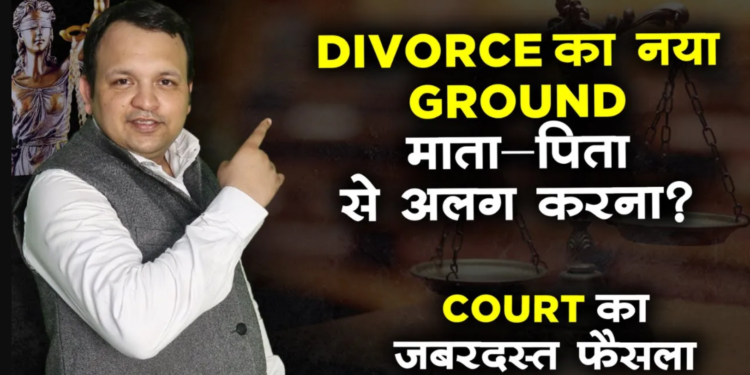Introduction:
In contemporary society, evolving family dynamics have given rise to new expectations and aspirations in marital relationships. A recurring issue that often arises is the question of whether a spouse can compel their partner to sever ties with their parents after marriage, and whether such an act constitutes cruelty. This blog delves into case law to shed light on this complex issue and offers insights into the legal aspects surrounding it. Keep reading till the end to understand complex law in its simplest form. If there still lies a doubt, feel free to reach out to us at https://thelegalshots.com/legal-opinion/
Under the Hindu Marriage Act, 1955, Section 13 outlines several grounds for divorce, one of which is cruelty. Courts have interpreted cruelty in various dimensions, encompassing a wide range of acts and behaviours that can be considered as constituting cruelty in matrimonial relationships.
Brief Facts of the Case:
In a case that came before the court, a husband and wife were married in 2007, and they had children together. However, over time, disputes began to emerge in their relationship. The wife started insisting that they live separately from the husband’s parents and only with their children. Ultimately, the husband filed a divorce petition under Section 13 of the Hindu Marriage Act, alleging that his wife was subjecting him to torture. He claimed that she disrespected his parents, did not prepare meals, and forced him to abandon his parents and live alone.
The wife refuted these allegations by asserting that her husband and in-laws were the source of the problems and that she has yet no issues in living with them. Consequently, the family court, which found a lack of evidence supporting the husband’s claims, rejected the decree to grant a divorce on the grounds of cruelty.
Final Judgement:
Dissatisfied with the family court’s decision, the husband appealed the case in the Delhi High Court. He contended that the family court had failed to consider the crucial ground he had presented – the insistence on living with parents and the wife’s unwillingness to do so. The husband argued that this amounted to cruelty.
The Delhi High Court, while adjudicating the appeal, referred to landmark judgments, including the case of Narendra vs. K. Meena (6th October 2016). The court took into account the perspective that parents, through their love and hard work, nurture and raise their children. Consequently, when they become elderly and require care, it is their children’s moral and legal obligation to look after them.
Based on this principle, the court determined that the wife’s insistence on living separately from the husband’s parents, thereby denying them the support and care they deserved, constituted cruelty in the marriage. Consequently, the court granted the divorce on the grounds of cruelty to the husband.
Conclusion:
This case serves as a reminder of the evolving dynamics in matrimonial relationships and the delicate balance between individual aspirations and familial obligations. The court’s verdict, while recognizing the changing social fabric, emphasises the importance of honoring one’s responsibilities towards parents and treating them with respect and care. In essence, it reaffirms that cruelty in matrimonial relationships extends beyond physical harm and can encompass actions that infringe upon these fundamental values and principles. If you have any questions or concerns on this matter, please do not hesitate to reach out to us for further guidance.
For understanding more such complex law in simple ways, stay connected with www.thelegalshots.com .
If doubts still persist, contact our Legal Experts at




